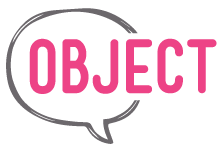By: Naomie Chien, Grade 8
After starting as a researcher that studied social movement, Amy Caiazza, our speaker of the day, delved into the legislative branch and found what she truly loved to do. Going into law school, Amy had never thought that she was going to be a securities attorney. “Don’t be afraid to make change,” she now advises. “If you’re unhappy, you don’t have to just stay on the course. You can shift midstream.” Amy definitely wasn’t afraid to make a change when she became interested in a completely new branch of humanities: law. She kept her mind open to new paths and went with what she found to be the most fun. Now, every day at work, Amy helps high-tech companies and start-ups decide whether a decision aligns with the law and what the best course of action was. She maintains close relationships with her clients and works really hard to make the best choices for the companies that she works with.
Confidence played a big role in Amy’s life. Just like all of us, she had her ups and downs; she’s encountered difficulties and a lot of self-doubt. During the workshop, she reminds us that “It’s really important to not get rid of [self-doubt] that. It’s always good to think about how you can do better or what might be wrong, but if you listen to that too much, then it keeps you from being decisive, it keeps you from moving forward, and it doesn’t inspire confidence in others.” When struggling with a lack of confidence, Amy always moves past by thinking about how self-doubt doesn’t benefit others, especially when you are helping them. Amy also mentions another part of confidence: being okay with “looking stupid” and knowing that if you answer a question wrong, it doesn’t matter. “Part of confidence is saying, ‘I don’t know the answer to that’.”
During our workshop, Amy helped us learn about the federal securities laws that she works with and how the laws could be applied in real-life situations. We learned to determine whether a scenario was or wasn’t a “security”. A security is when all of these statements are true/met: the event is an investment of money, there is a common enterprise, the investor has an expectation of profit, and the profit is derived solely (or primarily) from efforts of others. Participants in the activity session were divided into five groups with different scenarios. Half of a group argued that the scenario was an example of a security and violated the Securities Exchange Act of 1934 by not registering as a security, while the other half argued the opposite. Each group then presented their arguments and the “jury” (rest of the participants) gave out a verdict.
We thank Amy for coming all the way from Washington D.C. and taking part in our February workshop!



